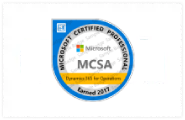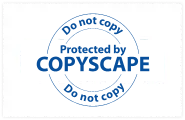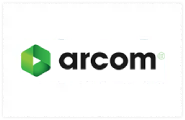ERP Software for the Healthcare Industry
ERP software is now a popular tool used by businesses across all industries to automate and streamline business processes and enhance productivity.
As a result of its powerful and superior capabilities, ERP has eliminated information silos and consolidated data. It also makes relevant data available to team members, allowing them to surpass the competition.
Institutions such as NGOs, hospitals, and governmental entities use ERP to provide easier workflows and more effective management of daily operations.
According to research, the US healthcare ERP business is predicted to increase to $2.1 billion by 2025.
ERP appeals to healthcare professionals for the same reasons that it appeals to enterprises.
As more healthcare organizations and individuals learn about the benefits of this cutting-edge software solution, they are transitioning from outmoded systems to ERP.
They can do this to speed up network procedures, organize and consolidate their personal information, and assure its accuracy.
The Role of ERP in Healthcare
ERP for the healthcare industry is quite beneficial when it comes to handling critical business activities such as inventory, HR, customer contact, and financing. Many hospital departments require integrated systems for the integration of core and support services, as well as back-office operations.
Healthcare providers are struggling to meet two fundamental goals: providing high-quality care to patients while substantially reducing costs.
Healthcare organizations are constantly improving ERP systems in order to improve and increase patient care.
The elimination of clinical errors and boosting the effectiveness of healthcare practitioners are two of the key reasons for the implementation of ERP systems in healthcare.
As a result of several technological advancements, healthcare organizations can now connect doctor and personnel information with patient databases.
Healthcare practitioners require real-time patient information, such as test results, in order to give effective care and ensure the best results.
Several systems, including patient electronic medical records, communication networks, and various diagnostic systems, must streamline information.
Patients are given access to their medical records, making it easy for them to make educated decisions and schedule necessary consultations.
Why You Should Use ERP in the Healthcare Industry
ERP is widely used in the healthcare business nowadays as a result of its numerous positive implications on patient care.
Better healthcare outcomes and patient health, cheaper costs, and increased operational efficiency are all clinical and administrative grounds.
Let’s take a deeper look at each of the benefits.
-
Access to medical records for patients and providers is simplified.
When a patient calls with a medical problem or makes an appointment, healthcare personnel must be able to quickly access patient records. However, it is not as simple as it appears.
Unfortunately, the bulk of healthcare organizations’ older systems did not have this feature.
Many healthcare practitioners have shifted away from manual input and paper-based systems and toward ERP solutions because they allow immediate access to essential information, which unquestionably improves the patient experience.
Medical institutions who transitioned to an ERP or modified their current ERPs have a significant edge over those that did not, confirming their worth and being especially valuable during this period of a worldwide pandemic.
The additional workload that the healthcare system had to manage during the pandemic was the biggest challenge, but it was much reduced everywhere patients and professionals used technology.
Technology has enabled the automated monitoring of body temperature, oxygen levels, blood pressure, and other indicators, allowing patients to receive aid faster and healthcare personnel to ensure improved patient outcomes.
When such information was paired with additional details such as the patient’s medical and travel history, healthcare providers could prioritize which individuals required emergency medical assistance.
Furthermore, they were able to converse with patients immediately rather than always racing to the emergency room.
-
Improving Patient Care
Cloud-based ERP technologies enable healthcare personnel to review patient data and reports even when they are not physically present at the medical facility.
This allows them to provide relevant guidance whether or not they are physically close to the patient and allows patients to make well-informed treatment decisions.
With modern software, it is simple to schedule future diagnostic and medical treatments.
A comprehensive ERP system makes critical patient data available across multiple platforms.
-
Reduced Operating Costs and Errors
Healthcare organizations, like any other business, must properly manage their financial procedures.
Healthcare ERP software improves processes by handling a wide range of tasks such as HR, accounting, payroll, inventory, and so on and consolidating them all into a single database, optimizing and automating many backend processes such as managing payroll, inventory, accounting, and other related tasks.
This improves the overall accuracy and efficiency of the cost monitoring process.
ERP systems can organize and refer to patient payments while also managing healthcare providers’ own expenditures by arranging and referring operating costs for suppliers and relevant services.
Automation has almost removed the potential for human error in admin operations and inventory data entry.
-
Implementation of Best Practices in Healthcare Process Restructuring
Healthcare procedures can be made more efficient by merging critical facilities such as emergency services, OP departments, EMR administration, radiography, patient ID, and so on.
Using a dependable ERP solution, healthcare organizations may more efficiently monitor all procedures and policies pertaining to things like payments, member benefits, provider networks, registration, and other difficulties.
It will help them get started and stay on track with industry best practices.
-
Patient Privacy and Security
ERP in the healthcare industry significantly improves patient safety by enhancing patient-physician contact.
Because medical records are incredibly sensitive, they should always be kept private.
Without a secure system, you could experience a data breach, resulting in a loss of credibility and reputation.
Adopting ERP in the healthcare business is an excellent method for ensuring the protection of sensitive patient data.
A good ERP solution allows you to configure the system so that only people with the appropriate authorization and after two or more authentication can access patient records.
These professionals will be able to update or modify data in the ERP system as needed.
Other organizations will be persuaded that your healthcare service is committed to improving patient outcomes and health if it has an integrated ERP system.
-
Strategic Planning, Business Intelligence, and Reports
Deploying an ERP solution for healthcare can assist you in increasing operational efficiency and providing real-time insights that allow you to take appropriate action. A hospital or healthcare center is a company as well.
An ERP tracks key indicators, or KPIs, to provide information on topics such as patient visits, budgeting, and procurement, among others.
ERP software is used to compute and analyze a healthcare facility’s operational efficiency, as well as to identify gaps and bottlenecks.
Administrators can use all of this information to plan forward and develop effective business plans that will increase efficiency across all departments.
Top management will be able to track progress and decide whether or not to change present practices and policies by identifying areas for improvement.
With the use of smart, detailed business analytics and operational insights, managers will be able to make swift, mission-critical decisions for their healthcare organization.
Most importantly, ERP programs can forecast the near future and shed light on budgets to help you plan your expenditures.
-
Improving Industry Compliance
Perhaps no other industry is subject to as many laws and regulations as the healthcare industry. Failing to comply with the standards may subject your organization to huge fines and reputational damage, but it may also have disastrous consequences for patients and the service you provide.
As a healthcare practitioner or institution, you must be proactive in addition to following compliance laws.
The first step in this direction is to ensure that your operations are clear, secure, and traceable.
You risk failing critical audits or being found in violation of industry laws if you continue to employ old technology and antiquated record-keeping procedures.
However, regardless of where you are, ERP for healthcare makes it simple to generate the relevant documentation when it is asked for.
Compliance with rules and other duties is straightforward with this technique.
Conclusion
Using an ERP solution in your organization will help you get multiple stakeholders, including patients, doctors, insurance companies, and so on, on the same page with consolidated information.
On the market today, there are various robust, creative, customizable, and user-friendly ERP software solutions.
Healthcare employees may prioritize improving the quality of treatment they provide to patients and achieving the greatest results over decreasing costs or increasing operational efficiencies.
ERP software is rapidly being adopted by hospitals, clinics, nursing homes, and professionals as a means of improving overall performance and gaining a competitive advantage.
The need for increased transparency and accountability has hastened the pace of ERP installation in healthcare organizations.
If your organization hasn’t previously implemented an ERP system, now is the time to seriously consider doing so.







